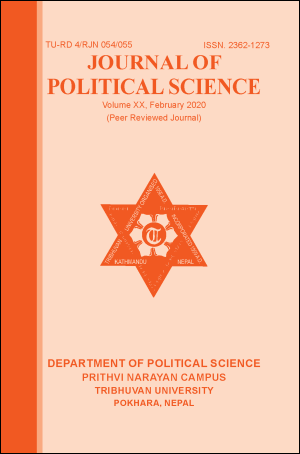Dibya Upadesh: Pragmatic Guidelines to Nepalese Diplomacy
DOI:
https://doi.org/10.3126/jps.v20i0.31792Keywords:
Instruction, sovereignty, strategy, successors, survival, unificationAbstract
The origin of Nepal’s foreign policy dates back to the time of unification of Nepal by king Prithvi Narayan Shah in 1769. For the first time, Nepal was able to make structural provision to conduct foreign policy in a more successful way by deputing skilled officers. It was king Prithvi Narayan Shah who displayed skillful diplomacy in the initiation and successful operation of very challenging task of unification. Credit goes to his skillful war diplomacy. Besides spending active life from The House of Gorkha, he also became an ideal guardian to his successors. Keeping in view, the survival of the nation, he delivered some pragmatic instructions as an oratory to his courtiers and royal priests which we refer to as Dibya Upadesh. It covers the political, economic, strategic, military, geographical and other sectors of national life. More attention is given towards the protection of sovereignty and integrity of the country. So, this paper aims to analyze diplomatic insights expressed through Dibya Upadesh in domestic and external matter by taking state’s survival into consideration. The article is descriptive and analytical and data are acquired from secondary sources.




